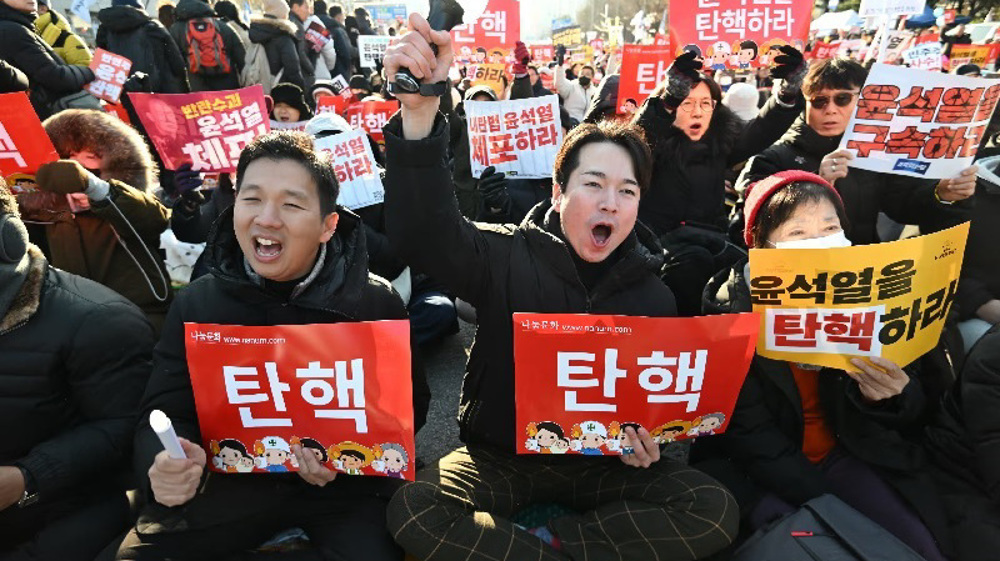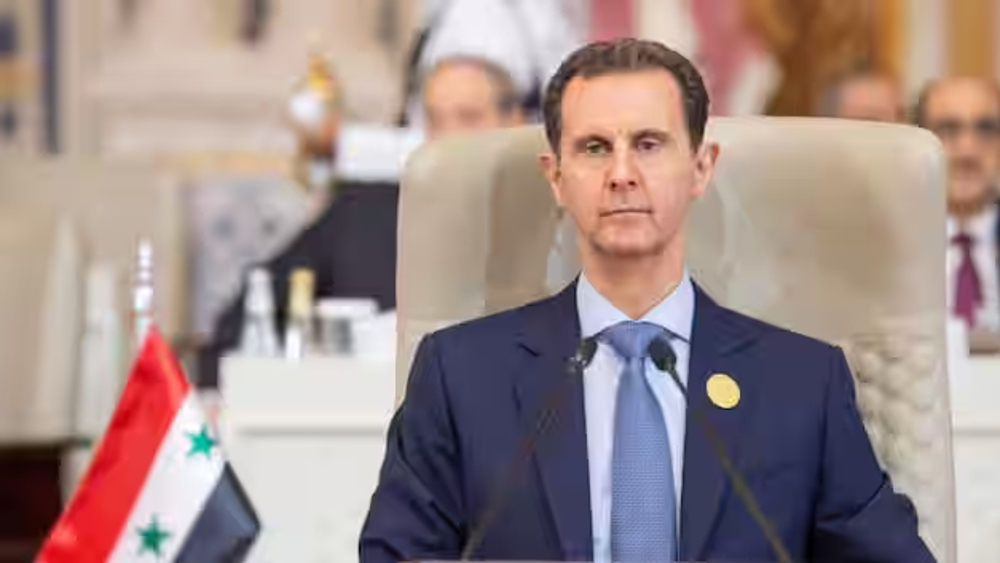Failed 2017 Qatar coup repeat of 1996?
In June 2017 Saudi Arabia, the United Arab Emirates, Bahrain and Egypt severed diplomatic, trade, and travel ties with Qatar, a tiny, yet gas-rich country in the Persian Gulf. The anti-Qatar quartet accused Doha of funding terrorism and fostering instability in the region. Qatar argued that this was a pretext to impinge on its national sovereignty and in fact the continuation of a nefarious plot hatched as early as 1996.
Soon after his accession to the throne in 1995, the new Emir of Qatar Hamad bin Khalifa Al Thani announced an end to press censorship and launched a satellite television station that allowed criticism of his government and others in the region, while taking steps towards a democratically elected parliament.
Though still a far cry from a democracy, Qatar was setting a new example in the Arab world; causing discomfort for its authoritarian Arab neighbors. Moreover, Doha was sending signals of separation from the Saudi-led bloc in its foreign policy; an unforgivable sin in the eyes of Riyadh. So the Saudis along with their all-weather friends decided to take control of the situation by removing the unruly emir...
What is Qatari, is Saudi et al
The Saudis, who have always viewed Qatar as part of Saudi Arabia and [think] any wealth, resources, land rights belong to Riyadh, have long had an eye on regaining control of said resources.
And that continues to be their policy and that's why it's very important for the people of Qatar and the government of Qatar to be aware that the Saudis will continue to have these desires to invade and to usurp Qatar and its wealth.
This is going to be something that the Qataris have to deal with for a long time unless the Saudis are gone or somehow greatly weakened."
Ali Al Ahmed, Director, Institute for Gulf Affairs
Another failed coup
In mid-February 1996, news spread of an attempted coup that would have changed the course of history in this part of the Middle East, had it been successful.
Shortly thereafter, Qatar's security apparatus arrested a number of suspects and put them on trial as the coup plotters; among them was Fahd al-Maliki, a former intelligence officer, whose confessions uncovered the role of the Saudi-bloc in plotting the overthrow.
Dubbed "Operation Abu Ali", the coup plot was hatched by a committee led by Sheikh Mohammad bin Zayed, then chief of staff of the UAE armed forces and current crown prince of Abu Dhabi; Sheikh Hamad bin Issa Al Khalifa, then crown prince of Bahrain and current king of Bahrain; Sheikh Sultan bin Abdulaziz Al Saud, then Saudi Minister of Defence; and Omar Suleiman, then Egyptian intelligence chief and former vice president of Egypt.
A 1997 New York Times article pointed out that the coup could have only been planned with knowledge and acquiescence from Saudi Arabia and the United Arab Emirates.
"The Saudi desire to invade Qatar and usurp its resources is an old-established fact.
The goal of the Saudi invasion and usurping Qatar and its massive wealth namely the gas reserves that is worth over 40 trillion dollars - that's 200 years of the Saudi budget - has been part of the Saudi expansionist policy with its neighbors."
Ali Al Ahmed, Director, Institute for Gulf Affairs
In the words of one of the coup plotters, “A group of men were ordered to raid the house of Sheikh Hamad bin Khalifa and place him under siege at his home, which was on the Al Rayyan Road [in Doha].”
Operation rescheduled
Despite having been originally set for February 16, it was rescheduled at the suggestion of the current Emirati Emir Sheikh Khalifa bin Zayed for February 14 so as to prevent the plot from being uncovered, according to another coup plotter.
After taking control over military and security installations, the plotters were to give the green light for militias to enter Qatar from across the Saudi border.
Coup de uncover
New details came out about the 1996 coup plot in an exclusive interview Al Jazeera with Paul Barril, a former French Army commander employed at the time by the quartet to facilitate the plan. Years after the failed coup, Barril’s personal testimony in 2018 shed light on the involvement of the anti-Qatari camp.
The UAE, according to Barril, accommodated him and his 40-strong team in Abu Dhabi's InterContinental hotel, where many weapons – transferred from Egypt - were stored.
They were also given UAE passports to facilitate their movement by the current Abu Dhabi Crown Prince, Mohammed bin Zayed al-Nahyan, who was then commander-in-chief of the UAE forces.
At the same time, the Saudis were recruiting tribal fighters, while Bahrain was to be used as a center to oversee the operation in Doha via wiretappings.
Vive Le France
Meanwhile, 3,000 Chadian soldiers were also to take part in the attack under a deal clinched with President Idriss Deby worth $20m.
According to Barril, at the eleventh hour he received a call from then French President Jacques Chirac, who personally ordered him to stop any "foolishness" from happening.
"One must know that the French government has continuously allowed French mercenaries to participate in such illegal wars and invasions - be it in Saudi Arabia or Yemen or even in Africa - without any repercussion.
In fact, they've provided protection for these mercenaries. This is something that the French government is fully aware of but continues to ignore in contradiction to their supposed policy of supporting human rights and international law."
Ali Al Ahmed, Director, Institute for Gulf Affairs
Should the attack have taken place it would have resulted in the captivity of Emir of Qatar Sheikh Hamad, his foreign minister, and others from the ruling family. The coup attempt was deemed over with the arrest of coup operatives.
Regional enmity see-saw
By many reliable accounts, like those provided by The Emir of Kuwait and The German Foreign Minister, the blockading countries had a plan to attack Qatar days after the imposed siege in 2017.
"The rift between Saudi Arabia and its allies and Qatar may subside but it will never be healed because this is part and parcel and the genetic composition of the Saudi monarchy to invade, conquer and bully its neighbors, especially small neighbors like Qatar.
So it will never go away. It will only subside in the short term but in the long term the goal and the desire to capture Qatar, its territory, its decision, its sovereignty, and most importantly its national wealth - the massive gas reserves - is the Saudi goal that continues to be very active today and it will continue to be in the near future."
Ali Al Ahmed, Director, Institute for Gulf Affairs
Years after the failed coup, there are still no signs on the horizon to show that the quartet’s desire for putsch and bloodshed has abated.
‘All wars have rules. All of those rules have been broken’ by Israel
VIDEO | Report flags India’s violation of rights of Rohingya detainees
Turkey's foreign minister meets Syria's de facto leader in Damascus
'Next to impossible' to rescue patients from Gaza's Kamal Adwan Hospital: Director
VIDEO | Vietnam current prosperity
Report blames gasoil exports for shortage at Iranian power plants
VIDEO | Hind Rajab Foundation names Israeli war criminals vacationing after Gaza genocide
VIDEO | Australians rally for Gaza ahead of Christmas festivities















 This makes it easy to access the Press TV website
This makes it easy to access the Press TV website